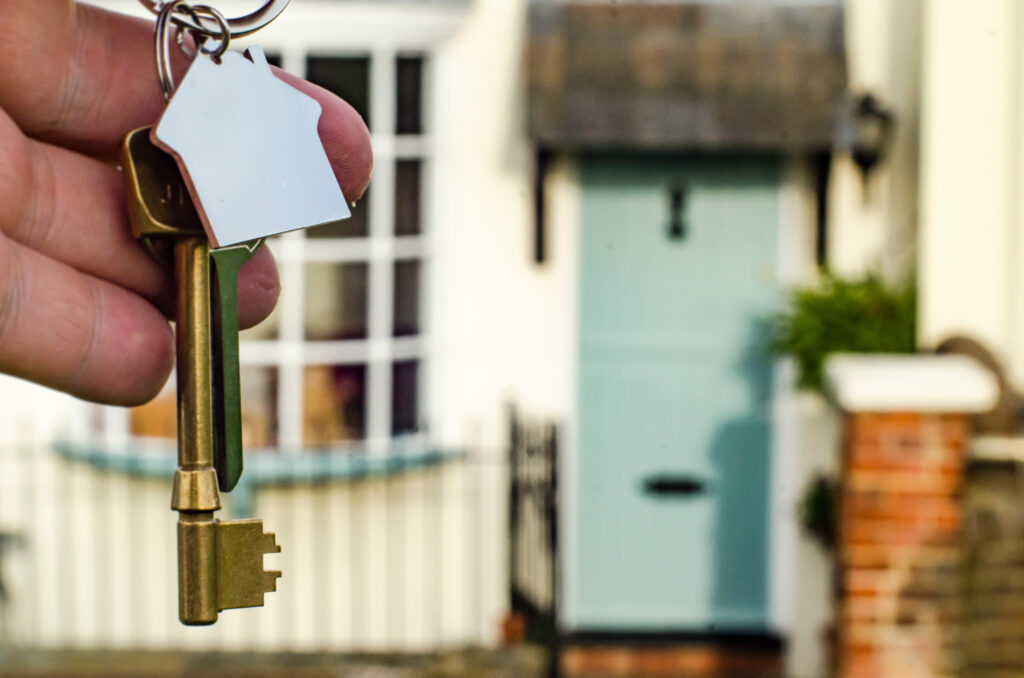Stepping onto the property ladder can seem like a dream for many, especially given the skyrocketing house prices and economic turbulence. But with a steady approach and consistent saving habits, your first home is closer than you might think. Here, we’ll share some practical advice on how to save for a deposit for your first home. With these tips and strategies, even the dream of owning a home can be a reality in a few years.

1. Set Clear Objectives
Know What You Need: First things first, know how much you need to save. Most mortgage lenders ask for at least a 5% to 10% deposit. For a £200,000 home, that’s anywhere from £10,000 to £20,000.
Set a Time Frame: Decide when you’d ideally like to buy. If you’re aiming for a 6-year timeline, that’s roughly saving between £1,400 to £2,800 a year.
2. Start with a Budget
Track Your Spending: Before you can start saving, you need to know where your money is going. Track every penny for a month and see where you might be able to cut back.
Set Saving Goals: Once you’ve trimmed unnecessary expenses, set a monthly savings goal and stick to it. This might be 20% of your take-home pay, or whatever figure you’re comfortable with.
3. Choose the Right Savings Account
High-Interest ISAs: Individual Savings Accounts (ISAs) offer tax-free interest. Look for one that offers a high interest rate to maximise your savings.
Lifetime ISAs: If you’re under 40, consider opening a Lifetime ISA. The government will add a 25% bonus to your savings, up to a maximum of £1,000 per year.
4. Make Saving Automatic
Direct Debits: Setting up a direct debit to automatically transfer money to your savings account ensures you don’t ‘forget’ to save.
Round-Up Schemes: Some banks offer schemes that round up your purchases to the nearest pound and save the difference.
5. Cut Back on Luxuries
While occasional treats are essential for morale, regular indulgences can quickly eat into your potential savings.
Avoid Impulse Buys: Plan your purchases. If you feel the itch to buy something not in the plan, give yourself a 24-hour cooling-off period.
Limit Eating Out: Cooking at home is considerably cheaper than eating out or ordering takeaways. Even reducing your dining out frequency by once a week can save significant amounts over a year.
6. Monetise Your Skills or Space
Freelancing or Side Jobs: Use your skills outside your regular job to earn some extra cash.
Rent Out Your Space: If you have an extra room or space, consider platforms like Airbnb. Even renting out your driveway in a busy area can bring in a tidy sum.
7. Avoid New Debts
This might seem obvious, but it’s easier said than done. Any new monthly commitments will reduce the amount you can save, and larger debts might affect your mortgage application later on.
8. Review and Adjust
Regularly review your spending, savings, and goals. Life changes and so might your circumstances. Adjusting your strategy every few months ensures you remain on track.
Owning a home is not just about having a roof over your head; it’s a solid investment for your future. If you’re looking for property advice or need assistance in finding your ideal home once you’ve saved that deposit, our expert team at Northwood is here to help. Let’s make your homeownership dream come true together.






